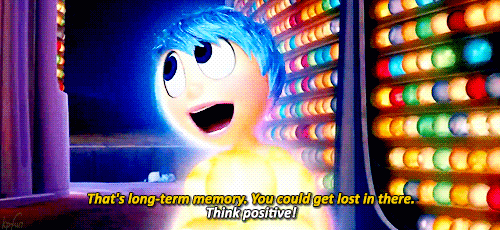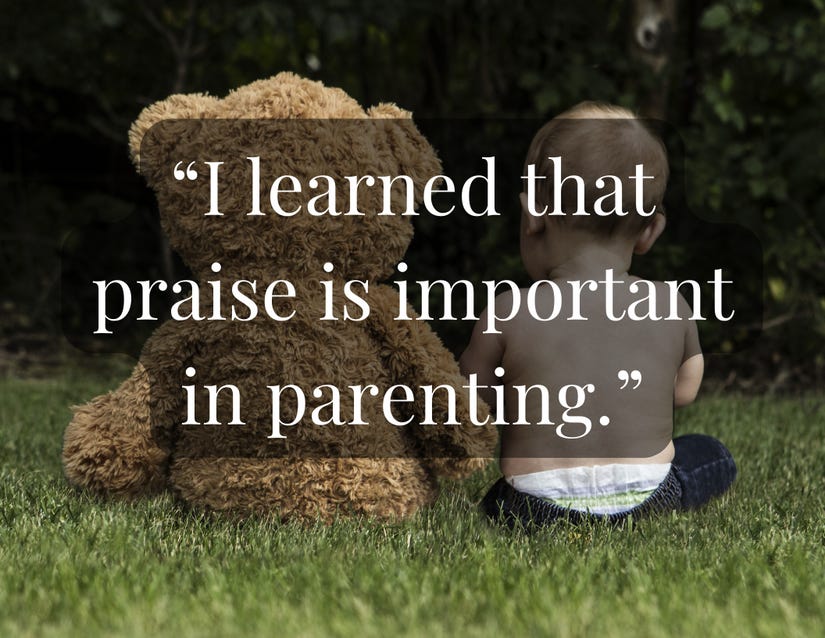👨🍼My First Year of Fatherhood: Polished Memories
What I still remember across parental empathy, praise, language, love, sacrifice, and balance
This post is inspired by a simple question.
My sister-in-law, who recently gave birth, asked me what I remembered most from the crazy, sleep-deprived first year of parenthood.
My initial answer was “not much.” It’s a well-known joke that somehow biology prevents most parents from vividly remembering their first year with a newborn because if they did, few would choose to bring brothers and sisters into the world.
Yet my answer isn’t entirely true. As the question has stuck with me for the past few weeks, it’s become clearer that many core memories happened during the first year that shaped how this new chapter of my life would unfold.
These memories have aged now that our kids are in elementary school. Time works like grit that smooths out the rough edges of memories – leaving behind polished gems full of meaning.
Here’s my story of adjusting to parenthood, with the fortunate hindsight of eight more years of my life’s parenting chapter to identify the top bright spots. It’s what I remember and what I learned from each memory.
😴 On Adjusting to a New Normal
I remember how it started. I remember saying “I’ll keep you warm and safe” to our firstborn daughter as I held her in the hospital operating room while the doctors prepared Helen to take the baby.
I learned that this moment was parental empathy at its very simplest. Every moment since then has required more judgment about why my daughter was upset – hungry? tired? fighting with school friends? – but in that first moment just out of the womb, she was cold and scared. Caring for another human being fundamentally has given me more tools to understand how others must be feeling. It’s one of the biggest gifts.
I remember the complete sense of despair in the first few nights as adjusting to multiple middle of the night wakeups left me with a sense of doubt if it would ever end and how we would cope.
I learned the power of “this too shall pass.” They say that in parenting, the days are long but the years are short. Despair and dread were a natural reaction to the grueling changes to my own comfort until I experienced how fast things evolve with a rapidly growing human. There was solace in the constant changes of the first year because nothing stressful was chronic.
I remember irrationally looking forward to the nightly family story time before bed.
I learned how important routines are. They give comfort to even the lizard part of our brains – for babies and parents – especially in times of stress. I know enough about my own personality to see that I reduce stress by descending into fiction and separating myself from reality for a bit. It’s why I like to read and listen to stories. It was an almost primal relief to have that constant in my life and incorporated into the new routine.
I remember checking for the third time that the baby was sleeping peacefully, even though I knew I already checked.
I learned that inner calm is more important than being rational. Helen and I giving each other permission to act this way was an essential part of acknowledging each other’s fears.
I remember reading books on how to develop good character in kids and baby proof the house, only to bring home a blob of a human who couldn’t even move on her own yet.
I learned that parenting is just like comedy – it’s about timing. Great parenting requires a wide swath of knowledge; little of it applies at any particular time.
I remember having to clean up a huge blowout in the back of our SUV despite running out of wipes and having no trash can nearby.
I learned that so much of the first year of being a parent is transactional. Eat, sleep, poop. The social and emotional components come later. Maybe someday the ability to reason with them will come (I’m still waiting). It came close to dominating the relationship between Helen and me for a while – our marriage became mostly about the transactions of baby routines. Finding ways of bringing back the complex, the emotional, the fun, and the thriving was important growth.
🔗On the Bond Between Co-Parents
I remember reading a parenting book called Wonder Weeks that talks about how babies go through “wonder weeks” of growth but it leaves them cranky. Upon deeper reading, Helen and I realized that any week and any fuss could be contorted to some wonder week milestone. Our “Oh, it’s a wonder week” inside joke was born.
I learned that, just like any tribe, parents need an outsider to form a clique against. For us, that was parenting books that overgeneralized.
I remember a feeling of unease in some of our first joint decision making as parents. Compromise took on a new meaning because I wasn’t compromising my own comfort and wishes, but those of a child I’d sworn to protect. I’d never done that with Helen before.
I learned that parental decision-making is a new muscle and requires the partnership to grow from pre-kid spousal conversations. We took the time to frame decisions, articulate explicitly the outcome and not just the activity, and research until we found 2-3 options. That became our playbook. Helen is so fantastic at narrowing down our problems into a few options for us to choose from by doing research. Parenting blogs, fellow parents, and of course grandparents are the Go To’s for reducing an ambiguous problem down to a couple of approaches. We found a way of balancing prior experience’s advice with our own autonomy. This led, eventually, to parental intuition.
I remember being praised for doing a great swaddle. I think we called it the “Iron Swaddle” and I was asked to do it as we believed it extended nap times.
I learned that praise is important in parenting. We have to be kind to each other through vulnerable moments. We have to be creative in giving thanks and acknowledging value. Helen has always been so fantastic about giving praise – it’s deeply embedded in her soul – and that was one of the many reasons she is a fantastic co-parent to go on the journey with.
I remember Helen struggling getting our baby to latch during breastfeeding and the stress round of doulas, clinic visits, and family advice.
I learned that the expectations we place on mothers during this time are so frustratingly unfair. Here I was being praised for basically tying a blanket correctly into a swaddle, while society had some implicit expectation that Helen would be able to immediately figure out something fundamentally new and ambiguous. I also learned, though, that mothers and fathers have different roles to play. Biology aside, the notion that the first bond the baby makes is to their nurturer and the second bond is to their protector feels deeply embedded into our DNA and impossible to fight against. That first year, the nurturer had a more obvious and larger role to play - it took hustle and creativity so that I was still pulling my weight as an equal co-parent. This doesn’t mean I played the exact same role as Helen - the goal was not to be interchangeable. It required us to put societal pressures in the background as much as we could and find a balance that worked for our family.
I remember Helen and I debriefing after our first PEPS class, having just met six other new parents. We compared notes, judged what we are good at, and discussed who we thought we’d connect with.
I learned that tribes are important in parenting. People say comparison is the thief of happiness, but it’s all so new that I craved the ability to see if what we were experiencing was normal. There is also something primal about finding community when I had a new family - we are destined to experience parenthood with others.
👣 On Evolving Myself
I remember being so frustrated one time that the baby wouldn’t stop crying and fall asleep that I need to put her down in her crib and leave the room.
I learned one of the most important lessons of parenting that first year: the only thing I could fully control was myself. Babies are more resilient and malleable than new parents going through the journey are. I had to make time to get sleep, find non-baby things that give me joy, and remember how I find energy. I wish I had spent more time thinking about the father I wanted to become instead of the baby I wanted to raise.
I remember during one of our baby’s first irrational tantrums, Helen found such patience to show she understood what the baby was feeling when I just wanted to lean into my gut instinct to reprimand.
I learned that as a parent there are times when I must sacrifice my own desires and instinct to choose the easy path and replace that feeling with a grounded view of what my child needs from me. This takes energy and patience and fortitude. As the years went on, Helen and I would be asked who is the disciplinarian in the family or conversely who is the “fun parent.” It’s not that simple and that’s not the roles we play. A better question to ask is who is better at sacrificing to be the parent the situation requires. Doing that well is worth the parenting Gold Medal.
I remember explaining .NET computer science concepts of garbage collection and object oriented programming to my daughter while on a walk.
I learned that the gift of hearing as much language as possible was a gift worth giving and I’ve had enough baby talk to question my own sanity. To this day, many people talk about how articulate our daughter is. I believe that just more hours of hearing language made a difference. I found my own moments of pride.
I remember having my first moment of deep love as I watched our baby sleeping when she was a few months old.
I learned that there is such much pressure to conform to whatever notion of love Hollywood pitches. But I was sleep deprived, shocked at how hard this is, and doing a million things. It took some time and came in unexpected moments. For me, it was a wave of warmth while watching her sleep one night. Over time, this has been a seed that grew into many other ways of expressing love. But I’ll remember the first.
💖 Show Them What Love Is
There was not a lot I could teach my child in the first year - so much of it is about providing a safe place for biology to let the automatic growth happen.
But the thing I could control is myself – defining the father I wanted to be – and importantly how I wanted to show love.
There is a famous quote from the movie The Perks of Being a Wallflower:
In this first year, we can teach our children that they deserve healthy, quality love - and show them how we can give that love to our co-parents as well. It’s a gift that can last a lifetime.






